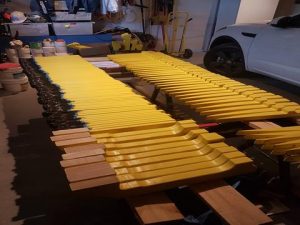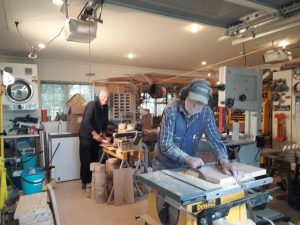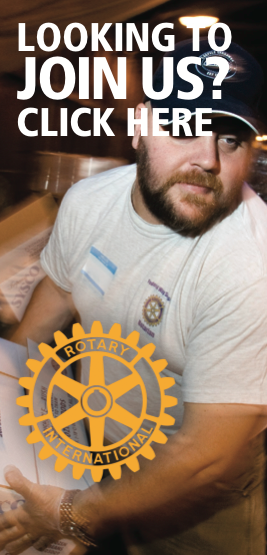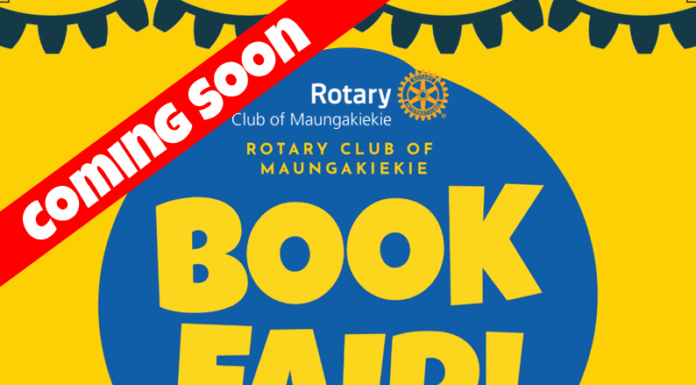President Robin welcomed members, DG Grant Smith and wife Sarah and guests to our 2022-23 Changeover Dinner and extended apologies from our incoming President Quentin Jay who was belayed with COVID-19. Following grace was a fine meal provided by the kitchen of Parkside Village.
The evening was kicked off with two 70’s Club draws, led by Lloyd who explained how the lucky number draw was created by club member Morris Mitchell as a fundraiser in 1990. Members purchase tickets which randomly drawn in a series of four sessions – Feb, March, May and June. The first three minor draws have four cash prizes ranging from $30 -$120 and the final, major draw on Changeover night, has six prizes ranging from $100- $500. Due to COVID, the May draw was delayed until tonight where top prize went to Rod Kestle. The top prize for the major draw went to a very fortunate Trevor Mosley.
President Robin reflected on how we kept on with meetings via Zoom which while technically challenging, were still well attended. Given all that occurred during the year, Robin said we still have much to be thankful and grateful for.
DG Grant Smith followed summarising his year having visited 21-clubs starting with ours which holds a special place in the hearts of many in the District. DG Grant’s main goal this year was to encourage clubs to collaborate and to undertake bigger projects – and “to always have fun!” One the highlights is the ongoing Te Tai Tokerau Mental Wellbeing project led by Cat Levine which raised $600,000 in 6-weeks and is sure to be a legacy project that will last a very long time. DG Grant also noted our club had the greatest increase in membership in the 9910 District – so well-done to Robin and members involved. DG Grant presented Barry Stafford with an Avenues of Service Award for outstanding efforts in Community Service. The Shades Tour gave great prominence to the Rotary name which became a reality after receiving good funding and support from a donor member. Even though the tour was interrupted by a country wide COVID lockdown which led to the cancellation of the Auckland leg, the Nelson event still managed to raised $6,000 for flood victims -well done all.
President Robin presented the following members with a Paul Harris Fellow certificate and pin:
Iain McCrae
Bill Grayson
Bruce Murdoch
Paul Jenner
Tony Rayner
Outgoing President Robin presented the President’s Chain to Barry Stafford who received it on behalf of Incoming President Quentin Jay. Barry in return presented Robin with his Past-President’s pin.
Incoming President Quentin’s address (presented by Barry Stafford)
Quentin mentioned he is the first American born president of the club and unlike the 1,200-word Gettysburg Address, Quentin’s will only be 200. Quentin thanked Robin and team for overcoming the challenges of the past year, which is what Rotary is all about. Quentin welcomed the new members and looked forward to working with them to find where in the club they would most like to be engaged. He remarked on the new Rotary Club of Maungakiekie name badges that members received on the night, and stated – Maungakiekie: this proud mountain surrounds itself with a diversity of people, beliefs, and prospects. We as a club seek to reflect this diversity in who we are and the communities we serve.
President Robin inducted our three newest members: Cat Levine, Rhett Stephens and Jeannette Thorne … and introduced soon to be inducted members: Phil Aish, John Paul Goulding and John Mamea Wilson.


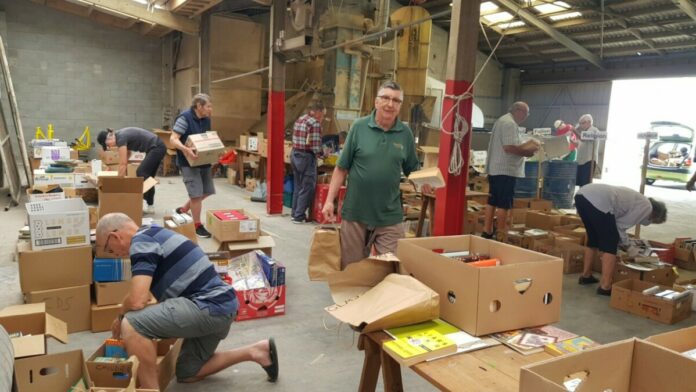
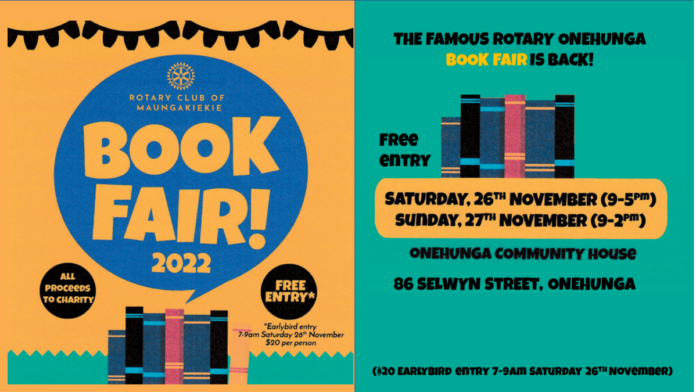
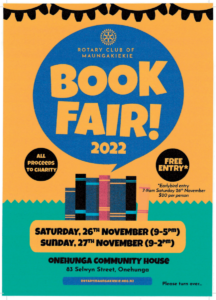
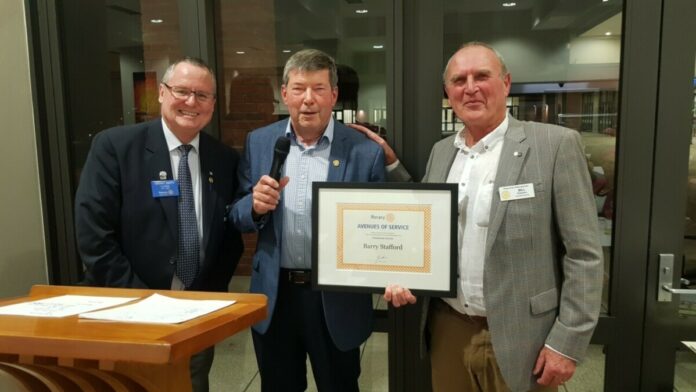
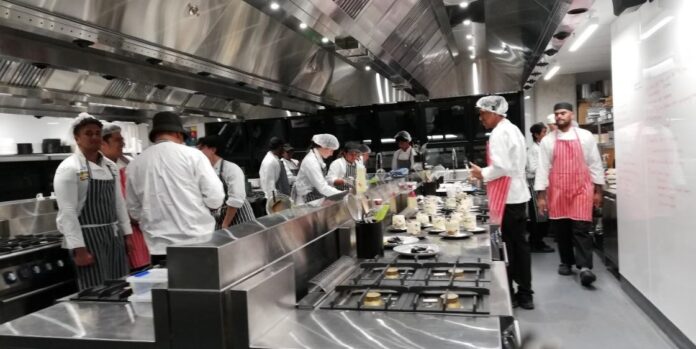
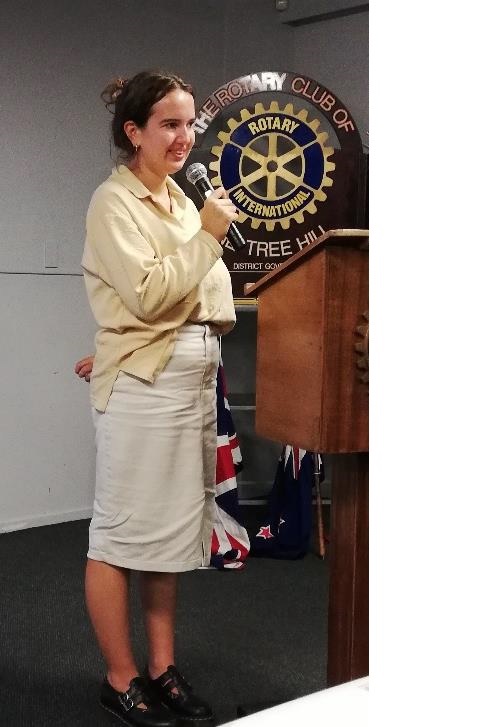
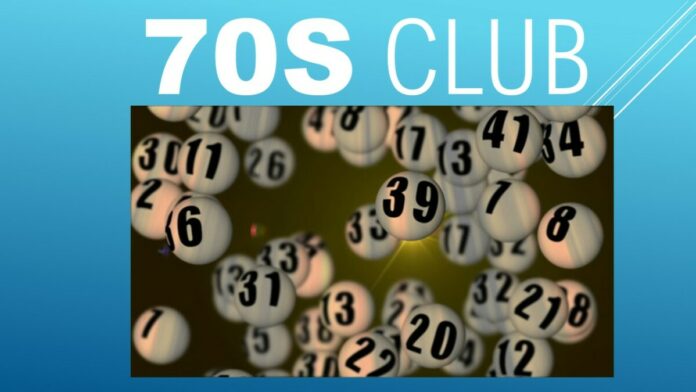
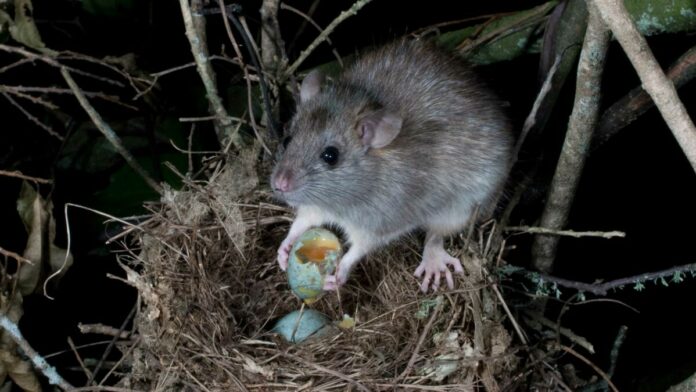
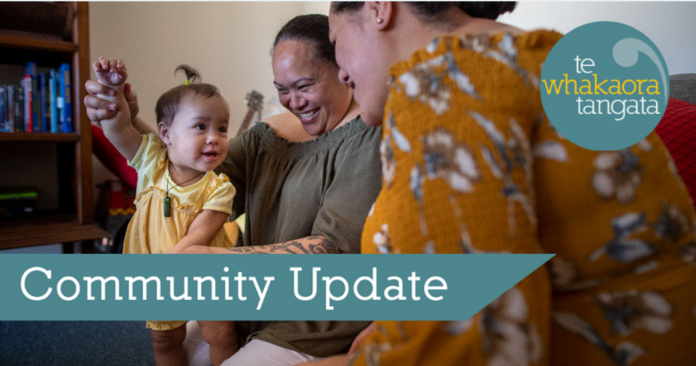





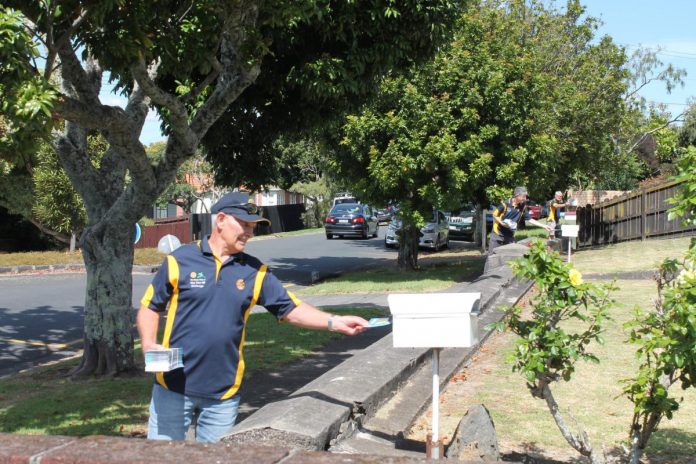


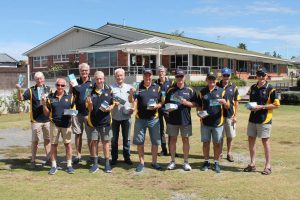
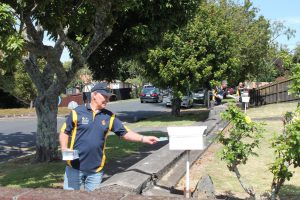
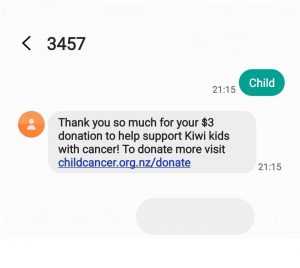
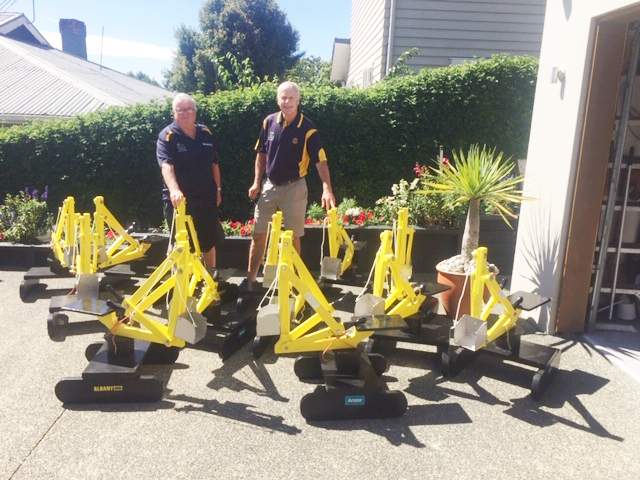
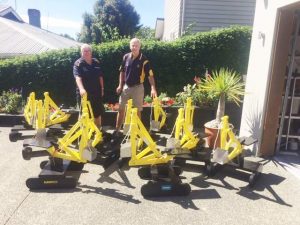 Background-
Background- 